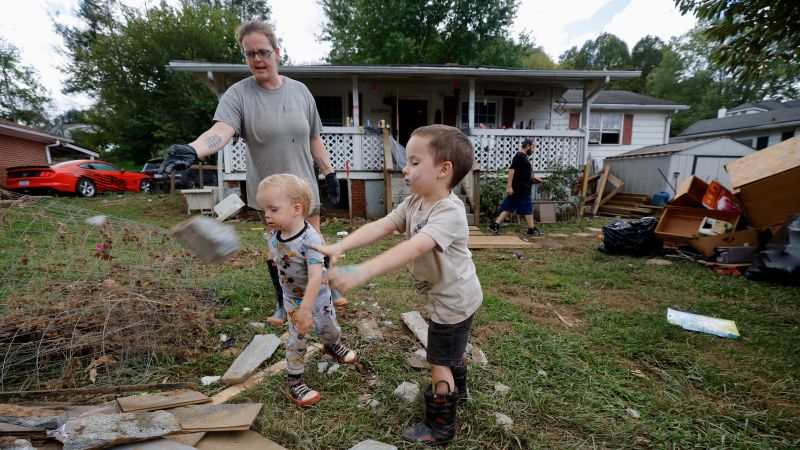The warming waters in the Gulf of Mexico have been predicted by climate scientists to lead to more intense hurricanes, as seen in the case of Hurricane Helene and Hurricane Milton. Americans are being warned to expect harsher weather events, such as extreme storms, wildfires, and hotter temperatures, as a result of climate change. However, despite these warnings, climate change is not considered a top priority in the current presidential campaign, with only a small percentage of voters seeing it as an extremely important issue.
In a Gallup poll from late September, it was found that the top issue for voters, particularly Republicans, was the economy. Other important issues for Republicans included immigration, terrorism, crime, and taxes. On the other hand, for Democrats, democracy in the US was the most important issue, followed by Supreme Court justices, abortion, healthcare, and education. Climate change did not rank highly on the list of important campaign issues, despite the potential impact of extreme weather events.
While climate change may not be a top issue for voters, a CNN poll from December found that a majority of Americans, including half of Republicans, support policies to reduce climate pollution. However, misinformation and conspiracy theories about climate change are still prevalent among some politicians, such as Rep. Marjorie Taylor Greene, who has spread baseless theories about the government controlling the weather. Ohio Sen. JD Vance, a prominent Trump ally, has also been hesitant to address climate change directly, instead focusing on increasing oil production.
In the vice presidential debates, both candidates sidestepped the issue of climate change, with Vance referring to “crazy weather patterns” and advocating for increased oil production as a solution. Meanwhile, Democratic candidate Tim Walz highlighted the Inflation Reduction Act as a way to boost American manufacturing while addressing climate change. Vice President Kamala Harris has expressed support for fracking, a controversial practice opposed by climate activists, as a way to address the climate crisis while maintaining economic growth.
Despite mixed messages from political candidates, polls show that Harris has a significant advantage over Trump when it comes to addressing climate change. While the economy and immigration may be driving more voters’ decisions, the potential impact of climate change and extreme weather events should not be overlooked in the upcoming election. Ultimately, addressing climate change will require attention and action from both policymakers and the public to mitigate its effects on communities and the environment.














